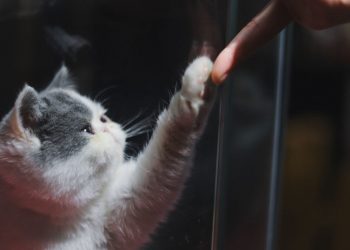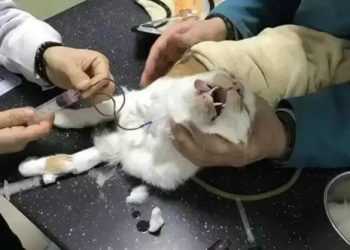IF you have recently adopted a dog or cat, congratulations!
The first thing to do after getting a pet is to take it to the vet, who will advice you on the necessary course of treatment including vaccination, deworming, spaying or neutering if applicable. The vet will also be able to observe your pet physically for any health problems that may need attention.
Vaccinations are crucial for protecting your pet from diseases that can be potentially fatal if left untreated. Vaccinations can protect your pet against diseases like corona, distemper, parvovirus and rabies – some of the most common causes of illnesses in dogs and cats. These diseases are fatal, and preventing it is the smartest option to save you from heartaches and a hole in the pocket.
Deworming medications would also be administered to kill intestinal parasites such as roundworms, hookworms and tapeworms that can cause sickness in pets. You should consider deworming your pet every four months once, and heartworm medication should be given monthly throughout their lives.
Pets should also be checked for fleas as it can cause itchy skin, hair loss and anemia in dogs and cats.
It takes time for a pet to fully adjust to a new home. Be extra cautious about the gate, and cover the gaps. Ensure there are no dangerous spots (such as electrical outlets) where your pet could hurt itself by accident, and keep poisonous substances out of reach, for example, Aerosols, detergents and cleaners.
Your new pet will need space. This may mean rearranging furniture or finding a quiet corner of the house for your new cat or dog to call their own. For dogs, this means a fenced-in yard, a spot at the house or a room.
For cats, it means a litter box and lots of places to climb and hide out. The rule of thumb is to have one extra litter box for every cat you own. For example, if you have two cats, provide three litter boxes at different locations, and ensure the litter boxes are always cleaned and changed regularly.
The sooner you start toilet training your puppy, the better. Older puppies or seniors may need more time and patience on your part so that they can become accustomed to using their potty area. The key to successful potty training your pet is consistency.
Spend quality time with your pet every day. Walk them, play with them and give them lots of attention and love. Pets often get depressed if they do not get enough attention from their owners, and this can cause unwanted damage to your possessions.
Breed research is a must before you make a decision to adopt a dog or a cat. Read up on each breed and see if they fit into your lifestyle. Pent up energy leads to destructive behavior, and is a reason pets are subjected to abandonment and abuse.
Ask yourself whether you have enough time. Breeds like Labradors, Retrievers and Malinoise need at least an hour of exercise each day. If this is not something you can commit to, then maybe one of these breeds is not for you.
It is important to make sure that your pet gets enough nutrition from their food. Owners should read the label on pet food and make sure it meets their pet’s nutritional needs. If you are not sure what brand of food to buy your pet, ask your veterinarian for recommendations.
Table scraps may seem like a great way to give your pet a little extra love, but they can actually be harmful. For example, most table scraps contain salt, which can be harmful to pets with heart disease or kidney disease. Also, some foods are not good for your pet’s digestive system, including onions and garlic.
Your pet’s poop can tell you a lot about their health. The color, consistency and frequency of their stool can provide clues to potential problems like parasites, urinary tract infection and other gastrointestinal conditions.
If you notice that your dog’s poop has changed from what it normally looks like, then you should take them to the vet for a check-up. Do not wait until your pet is really sick before you act. Most times, waiting can make it harder to treat your pet. If you notice anything unusual about your dog or cat, get them to the vet right away!




















